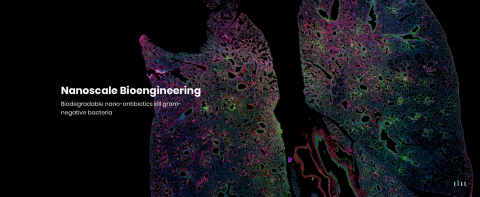Victor Nizet
Professor and Vice Chair for Basic Research,
Department of Pediatrics
Professor of Pharmacy and Pharmaceutical Sciences
University of California, San Diego
Seminar Information

Antibiotic resistance presents an ever increasing challenge to the public health with a dearth of new drugs in the development pipeline. Conventional screening paradigms in antibiotic discovery are based on MIC/MBC testing in conventional bacteriologic media, and similar tests on patient isolates are used to guide physician management. Economic factors have favored development of broad spectrum agents, which exert "collateral damage" on the normal microflora, now increasingly recognized to have adverse health consequences. A single-minded focus on direct antimicrobial activities overlooks the fact that significant infections are really a disease of the host-pathogen interaction. Indeed, before the patient has even seen a doctor, their infection is already being treated by multiple antimicrobials - namely the cellular and molecular components of the innate immune system. We see value in exploring potential novel therapeutic approaches for drug-resistant bacteria that aim to tip the host-pathogen interaction back in favor of the host. This talk will illustrate three such classes of novel therapeutics: (A) Inhibitors of bacterial virulence factors that re-sensitize the pathogen to innate immune killing; (B) Drugs that directly boost the antibacterial killing capacity of host phagocytic cells; (C) Antibiotics that synergies with endogenous antimicrobial peptides to effect bacterial killing. These studies will reveal how standard MIC testing can be misleading, and overlook potent antibiotic activities that are recognized only the context of the normal innate immune system. In this new discovery and treatment framework, drugs used in medicine for other indications, or antibiotics otherwise deemed ineffective, can be "repositioned" for treatment of multi-drug resistant pathogens such as methicillin-resistant Staphylococcus aureus (MRSA), vancomycin-resistant Enterococcus spp. (VRE) or carbapenemase-resistant strains of Gram-negative pathogens including Acinetobacter baumannii, Klebsiella pneumoniae and Pseudomonas aeruginosa.
Victor Nizet is a Professor and Vice Chair for Basic Research in the Department of Pediatrics and Professor of Pharmacy & Pharmaceutical Sciences at the University of California, San Diego, where he is Chief of the Division of Host-Microbe Systems & Therapeutics. Dr. Nizet received his medical training at Stanford University School of Medicine, completed a Residency and Chief Residency in Pediatrics at Harvard University's Children's Hospital in Boston, Massachusetts, and a Fellowship in Pediatric Infectious Diseases at the University of Washington's Children's Hospital in Seattle. Dr. Nizet leads a large basic and translational research laboratory focused on discovering virulence factors of Gram-positive bacterial pathogens, elucidating mechanisms of host innate immunity, and novel approaches to infectious disease therapy. Dr. Nizet has authored over 330 peer-reviewed publications (> 100 since 2013), including several in the most prestigious general scientific journals. He has collaborated with several biotechnology interests in developing new antibiotic and immune-based therapies against drug-resistant pathogens. Dr. Nizet's work has been recognized by an American Heart Association Established Investigator Award, the American Lung Association Career Investigator Award, the American Asthma Foundation Senior Investigator Award, and the E. Mead Johnson Award for Research in Pediatrics. Dr. Nizet has been elected to the American Society for Clinical Investigation, the Association of American Physicians, and the American Academy of Microbiology. Details of his research program can be found on the laboratory website: http://nizetlab.ucsd.edu
